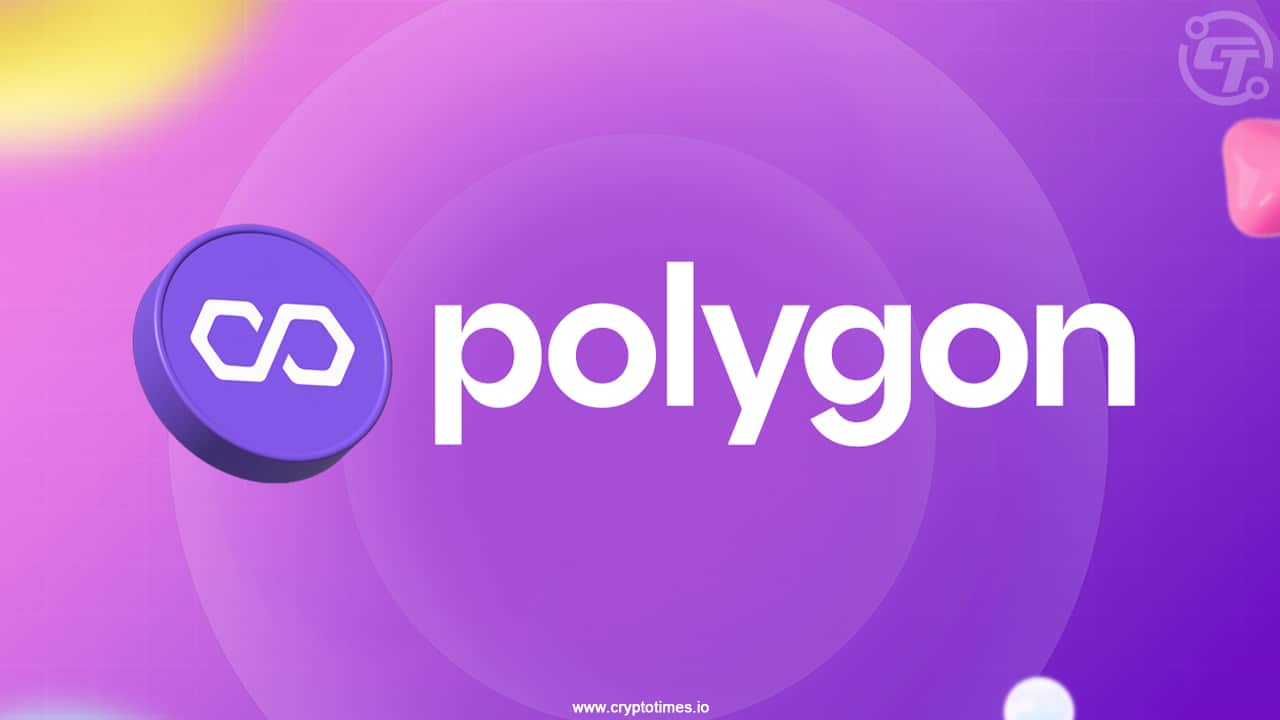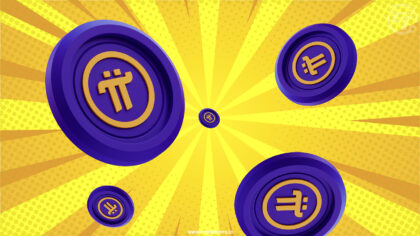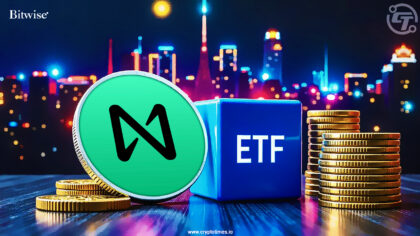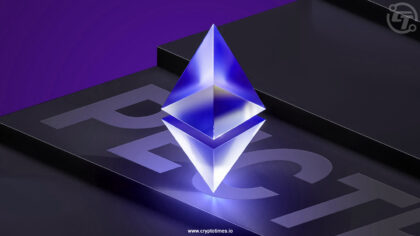Polygon, formerly known as Matic Network in 2019, has transformed the blockchain landscape by solving some of the most fundamental problems, such as slow transaction processing speed, high fees, and poor scalability. It ranks among the top Ethereum scaling solutions.
Many developers, businesses, and investors are migrating towards its ecosystem as it offers security of Ethereum while being faster and cheaper. Scalability has transitioned from being considered a luxury to being a necessity in this highly demanding market.
Polygon is an auxiliary layer solution for Ethereum and builds infrastructure of blockchain technology at its core. With more than $800 million total value locked (TVL) and signing contracts with multiple industry leaders like Meta, Reddit, Starbucks, and Nike, Polygon is aiming to establish itself as an industry leader when it comes to Web3 innovation.
Understanding Polygon is essential when trying to comprehend the future of decentralized technology. Recently, business tycoon Mukesh Ambani’s Reliance Jio has entered the crypto world with JioCoin, a digital token based on Polygon blockchain technology. In this article, we will learn about Polygon in detail, its working, and products. You will also get a step-by-step guide to buy its native token POL.
What is Polygon?
Polygon, formerly known as Matic Network, is a Layer 2 scaling solution designed to increase the Ethereum blockchain’s scalability and usability. With the goal of providing quicker and cheaper transactions, Polygon operates parallel to Ethereum while ensuring heightened security.
How Polygon Works?
Polygon provides various scaling solutions to developers, users and institutions who find it hard and expensive to use Ethereum base layer. Below is the explanation on how its does so.
Layer 2 Scaling Solutions
Polygon handles Ethereum’s scalability issues using Layer 2 scaling solutions. In order to do this, Polygon processes transactions off-chain and settles it on external sources and sends them back to the Ethereum blockchain for finalization.
This increases the transaction speed while also reducing the congestion on the Ethereum network. The combination enhances the processing power of Ethereum while retaining its security.
Bridging Mechanism
Bridging enables expanding utility and interoperability between two networks. Using this solution, users are able to transfer assets between Polygon and Ethereum network without any hassle.
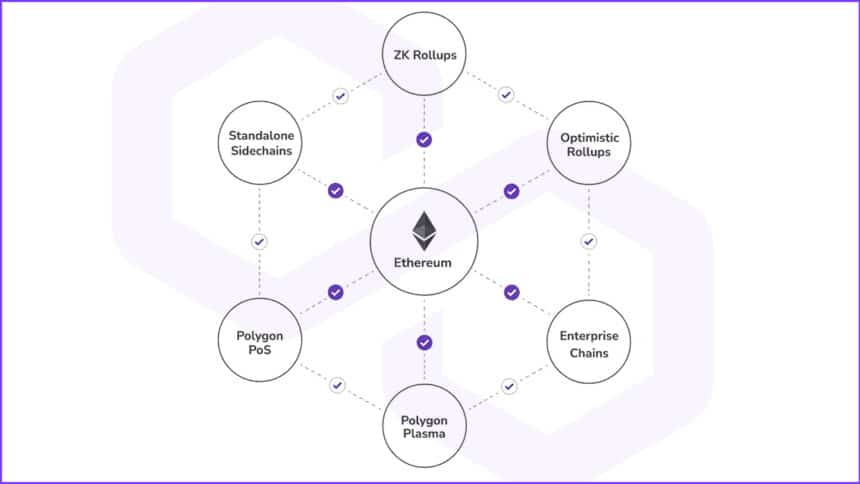
Products of Polygon
Ploygon offers multiple products that enhance it usability and security.
AggLayer
AggLayer or Aggregation Layer is an interoperability protocol under development, which aims to enable secure, trustless and cross-chain token transfer. AggLayer implements zero knowledge proofs so it allows for secure and fast communication among various chains. The latest version connects chains that use Polygon Chain Development Kit (CDK) and accelerates effective connection among a number of blockchain architectures.
Polygon PoS
The Polygon proof-of-stake (POS) chain uses Polygon’s validators and operates as a sidechain on the Ethereum mainnet. In this model, users validate blocks by staking their tokens, thus making sure the network is safe. In addition, the PoS model on Polygon is quite effective in terms of network performance due to its lower costs and improved user satisfaction.
Polygon zkEVM
Polygon zkEVM integrates a zero-knowledge Ethereum Virtual Machine, permitting the deployment of smart contracts with greater privacy and improved scalability. With the ZK proofs in place, zkEVM guarantees that every transaction carried out is secure and efficient while enabling the creation of more sophisticated and private decentralized applications.
Polygon Miden
Polygon Miden is an advanced Zk-rollup with client-side interaction platform that enables the development of private applications with significantly increased throughput. This technology is specifically optimized for use in payments, DeFi, digital assets, and gaming because of the added privacy and scalability features.
Matic Network to Polygon Rebranding
In 2021, the Matic Network rebranded as Polygon. It broadened its vision, which was originally just about scaling under a single layer to a strong ecosystem with different types of scaling solutions. The rebranding offers a broader range of tools and solutions.
Along with brand change, Polygon also introduced a transition of native token from ‘MATIC’ to ‘POL.’ This new ‘POL’ token serves as the native utility token inside the ecosystem and helps facilitate staking, governance voting and other utilities.
How to buy POL Token?
Acquiring POL token is quite simple. Here’s how:
- Step 1: Choosing a Good Exchange: Select reputed platforms that trade POL tokens. One of the advisable platforms you can use is Binance.
- Step 2: Sign up and create an Account: Visit the selected platform and carefully complete all the necessary verifications.
- Step 3: Fund Account: Use traditional currency or other coins to add funds to your account.
- Step 4: Buy POL: Go to the trading section, search POL and then add the amount you wish to buy.
- Step 5: Store Your Tokens: Also, you can transfer POL tokens to an external wallet to safeguard your assets.
Future of Polygon
Polygon aims to be a leader in blockchain scalability as well as interoperability. The AggLayer will improve cross-chain integrations by enabling Ethereum to interact easily with other networks. Its proprietary zkEVM and Miden technologies are ready to transform privacy and transaction efficiency through zero-knowledge proofs, making blockchain interactions more secure and cheaper.
With the increase of mainstream usage, Polygon has begun to attract big companies, with Nike, Reddit, and Meta adopting its blockchain solutions. The network is also enhancing decentralization by increasing the number of validators and governance with the new POL token.
Through research into scalability, security, and decentralization, Polygon is creating the new face of web3. As it continues to refine its technology and form partnerships, it serves as a vital pillar in the growth of Ethereum.
Conclusion
Polygon has firmly established itself as an ‘elite’ scaling solution for Ethereum with fast, cheap, and secure transactions for decentralized applications, decentralized finance (DeFi), and non-fungible tokens (NFTs).
Innovations on its Layer 2 solution, including zkEVM, Polygon POS, and AggLayer, push boundaries of scalability and interoperability. Polygon was launched to connect and grow Ethereum-compatible projects and blockchains. With upgrades, Polygon continues to move towards decentralization and wider adoption.
Also Read: Numeros Motors Launches NFT Rewards for EV Buyers with polygon

